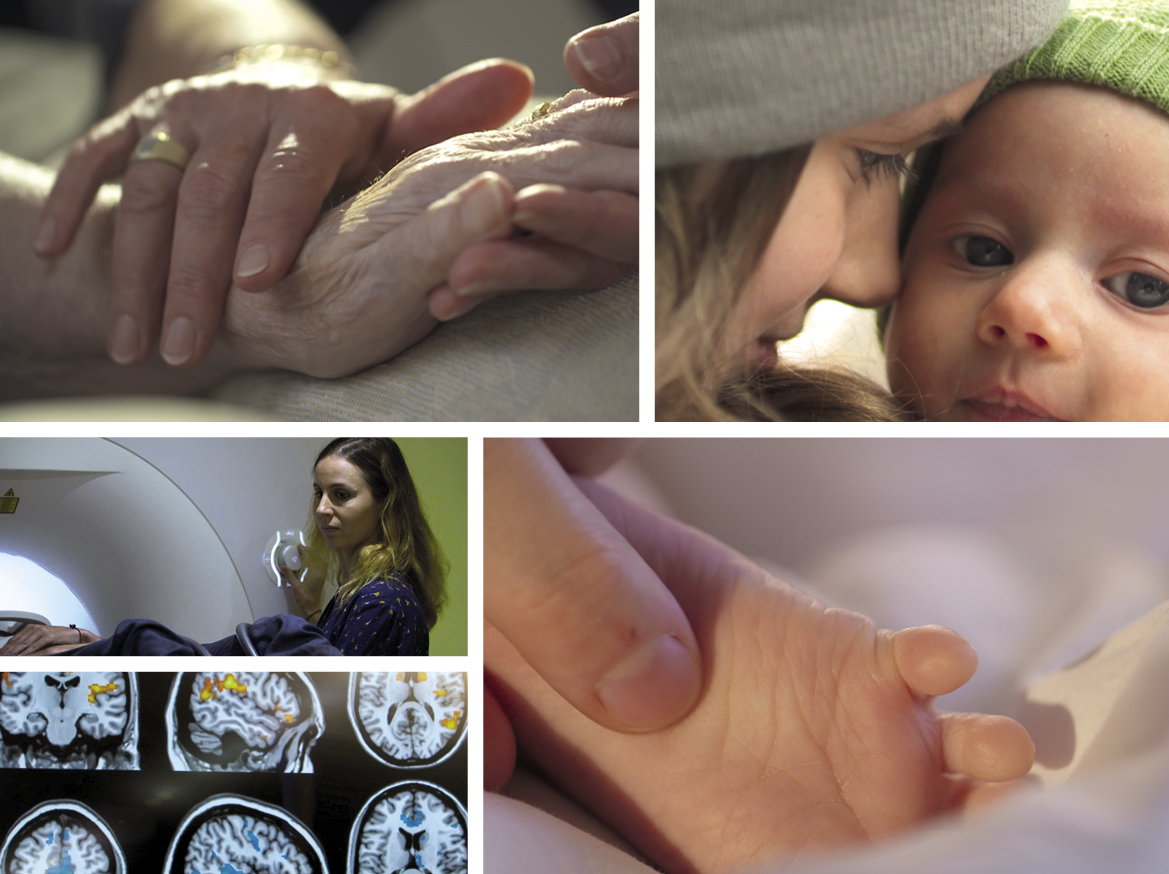THE POWER OF TOUCH

In times of social distancing, research into physical contact is gaining relevance. How does human touch affect our physical and psychological health, and what happens when there is a lack of physical contact?
Physical contact plays a vital role in our lives. It is a new-born baby's first experience of the world and conveys a feeling of security and belonging. It affects how we perceive stress and pain, how well our immune system works, whom we trust. Strong emotions such as love or compassion are more easily communicated through physical contact than through words, facial expressions or gestures. In times of social distancing, research into human touch has become increasingly relevant. Researchers are examining how the human touch affects our physical and psychological health and what the consequences are when there is a lack of physical contact. In addition to our sense of touch, humans have a highly specialised system that is exclusively receptive to gentle sensory stimuli. Why does it feel different to be touched by someone we are close to and by a stranger? What goes on in our brain – and what role does the brain itself play? A feeling that is so intuitive, so natural to us is actually the result of complex interactions between nerve fibres, spinal cord and brain that still raise many questions for researchers. Smartphones and the internet allow us to connect to family and friends today, but they are no substitution for physical closeness.